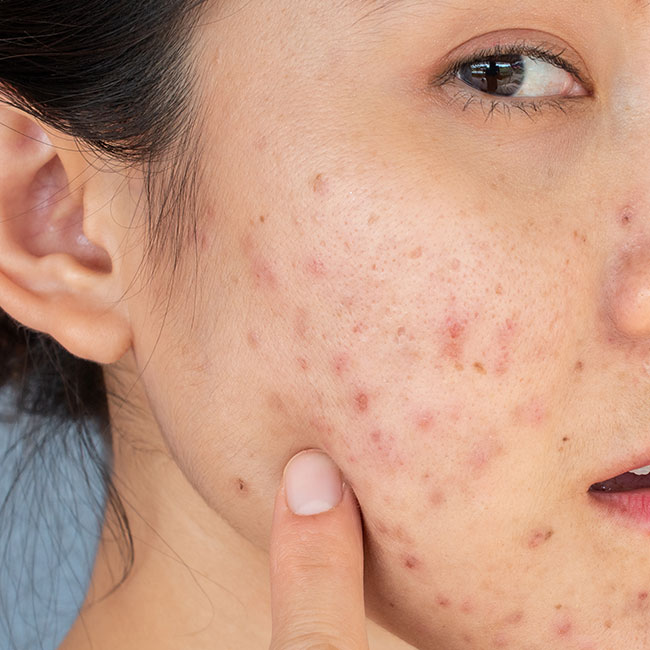
Mistake: Not Applying Sunscreen
According to Urban, "[There are several] lifestyle factors and skincare habits that can contribute to worsening dark spots on the skin. Not wearing your SPF daily is a huge one." She adds, "When we're using actives in our skincare products, this often makes our skin more sensitized to the sun's UV rays. This is why wearing a sunscreen of at least SPF 30 daily is suggested to prevent discoloration from staying longer."
Urban explains, "With that being said, those who spend extended time in the sun often experience a variety of pigmentation concerns ranging from sun spots to lingering scars." Aside from this, she suggests "wearing a hat and protective clothing when possible, especially during peak hours of the day between 10:00 a.m. to 2:00 p.m."
Ultimately, she warns that those "DIY skincare hacks that have filtered the internet such as using lemon juice to brighten dark spots is a no-no." Urban notes, "This can greatly change our skin's natural pH and therefore the overall state of health and function of your skin. Stick to the ingredients that are proven to work for your concerns."
If you're struggling with dark spots, she recommends checking out skincare products with the following ingredients: vitamin C, arbutin, and niacinamide. "These ingredients work by inhibiting melanin in the skin and to brighten your overall tone and fade existing pigmentation," she tells us.
Similarly, Blum shares, "The first step in reducing dark spots should always be sunscreen." She says, "Since dark spots are usually caused by hyperpigmentation—or post-inflammatory hyperpigmentation—the last thing you need is something that will give you even more inflammation. Using a sheer mineral sunscreen with iron oxides, like the Every Day Mineral Tinted Sunscreen, can not only help prevent new dark spots, but it can also help reduce the appearance of existing ones."
Lastly, Blum mentions, "It can take quite a bit of time to fade existing spots once you’ve begun protecting your skin, so you can use various topical treatments to help speed up the process." As far as tips go, she suggests "spot checking [a bit of the product] on your inner wrist or inner arm to ensure its not reactive with your skin before applying to your face."


